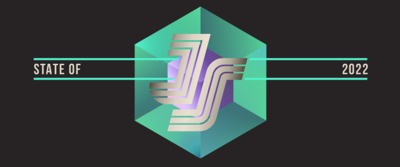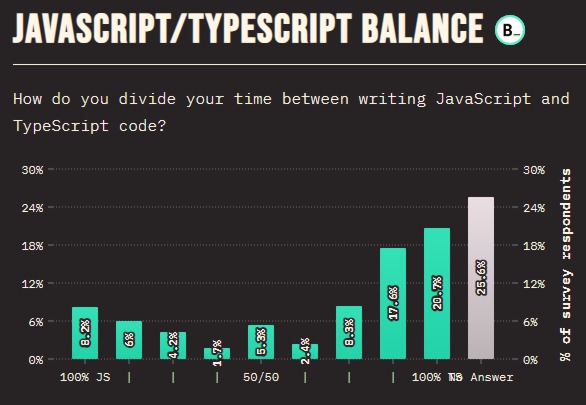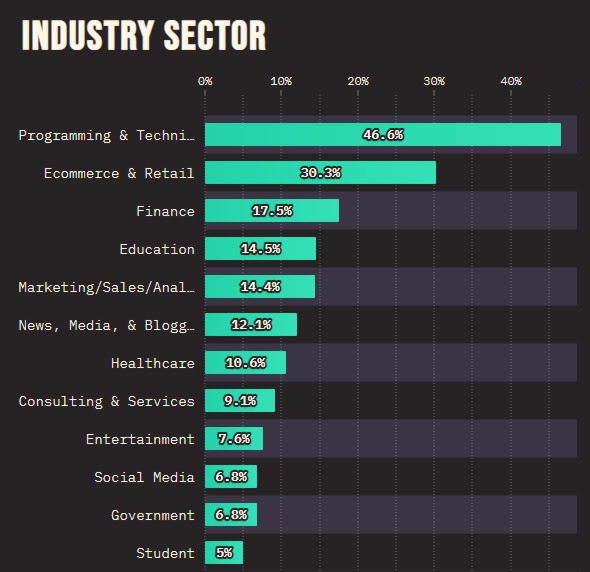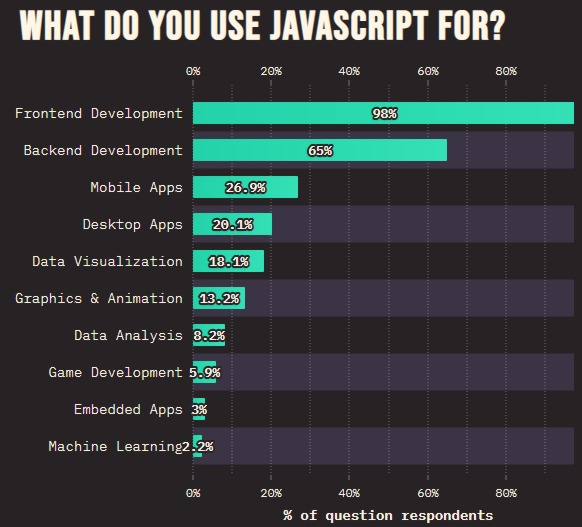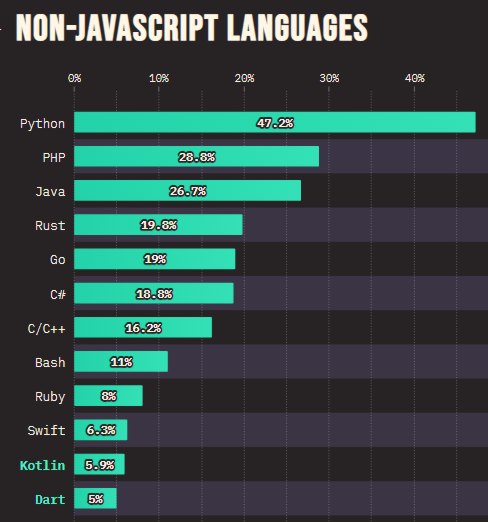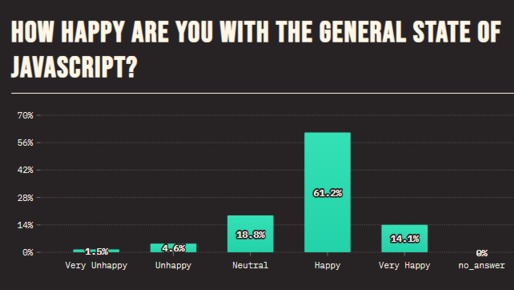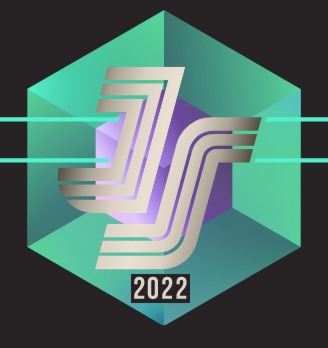| High Satisfaction Among JavaScript Developers |
| Written by Ian Elliot | |||
| Wednesday, 11 January 2023 | |||
|
The results of the 2022 State of JavaScript Survey have been released. What do they tell us about the ever-expanding JavaScript ecosystem and the developers who use it?
The State of JavaScript Survey has been conducted annually since 2016. It has grown year on year and according to Sacha Greif, who was its co-founder and has been involved in all seven iterations, in 2022 the survey received 39,472 responses, almost double the number of the previous year. Not all the respondents answered all the questions - although over 70% answered at least 90% of them which is a pretty impressive completion rate. As well as looking at developer's satisfaction with the JavaScript ecosystem and their knowledge of its features, a topic we'll cover in a future item, the survey provides interesting insights into how JavaScript is used and for what purposes. One new chart ion this year's report reveals that TypeScript is now the predominant flavour of JavaScript. When you eliminate the 10278 respondents who didn't answer this question, 28% of "JavaScript" developers use TypeScript 100% of the time compared to 11.1% who never use it: Despite having seen TypeScript's rise in popularity over the years since it was introduced I have to admit I find this an eye opener. The majority of survey respondents use Java Professionally - 85% compared to 7% using it as a student and 8% as a hobby. In terms of Industry Sector the software industry itself comes top, with followed by Ecommerce & Retail. Here the chart is truncated at Student but beyond that comes there's a long tail including some surprises like Travel (2.4%), Hospitality (1.2%) and Agriculture (1.2%).
JavaScript is overwhelmingly used for web development with 98% of those who answered the question selecting Frontend Development and 65% Backend Development. This was a "select all the options that apply" question so Mobile and Desktop apps, with 27% and 20% respectively were answers you might have expected. I'm less than convinced about using JavaScript for Embedded Apps, selected by 997 developers, and Machine Learning, selected by 661. Given the range of uses for JavaScript it comes as no surprise that developers also use other languages. Python, used by 47.2%, comes top which only goes to reinforce the idea that Python has become very popular. PHP which has traditionally underpinned web development comes second with 28.8%, closely followed by Java at 26.7%. The upcoming Rust and Go just outdo C# while Kotlin and Dart are new entrants to the top twelve non-Javascript languages used alongside it. Over 300,000 survey respondents answered the ultimate question: Fewer than 5% were either Unhappy or Very Unhappy; 18.8% were neutral and 75.3% were Happy or Very Happy which can be considered a good result for such a prevalent programming language.
More InformationRelated ArticlesHow Is JavaScript Doing? (2020) JavaScript Still Worth A Survey (2019) Survey Reveals JavaScript Trends (2018) JavaScript Ecosystem Under Scrutiny (2017) To be informed about new articles on I Programmer, sign up for our weekly newsletter, subscribe to the RSS feed and follow us on Facebook or Linkedin.
Comments
or email your comment to: comments@i-programmer.info <ASIN:1871962420> <ASIN:B0896SDK1Y>
|
|||
| Last Updated ( Wednesday, 11 January 2023 ) |
